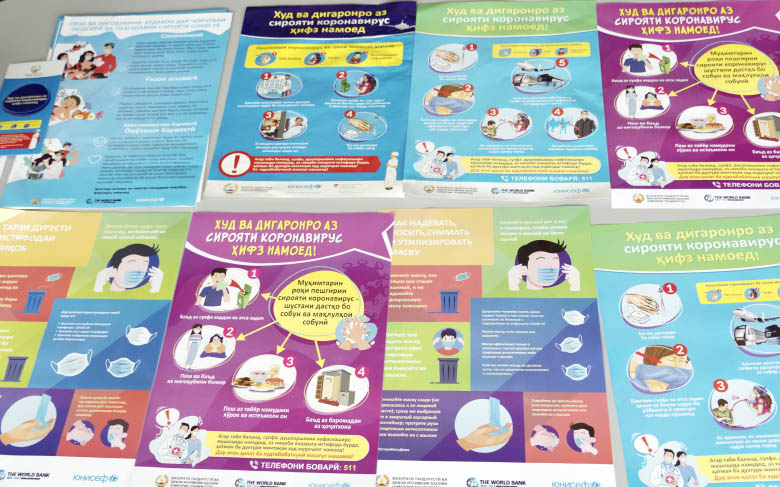In April 2020, Tajikistan was among the first countries to receive emergency support from the World Bank to respond to the COVID-19 pandemic. A grant of $11.3 million was approved for the Tajikistan Emergency COVID-19 Project, to strengthen healthcare capacity, provide emergency cash assistance to poor households, and finance national and local communication activities to inform the public about measures to help prevent the spread of the coronavirus.
Here are some of the results achieved so far through this project, in photos:
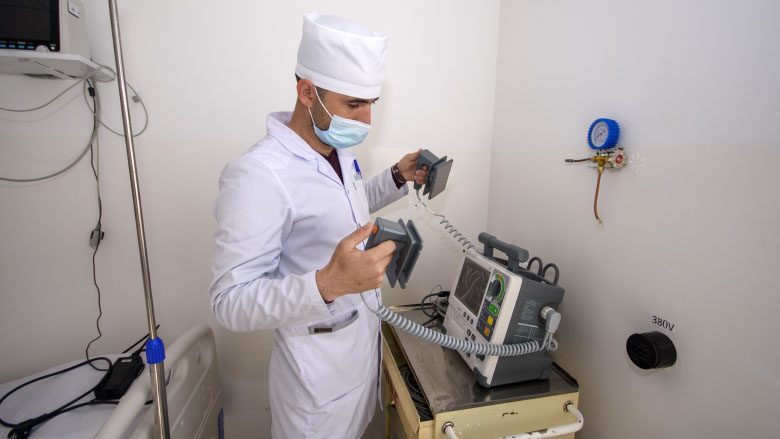
The Intensive Care Unit (ICU) of the central district hospital of Varzob, 25km outside the capital Dushanbe, was among ten hospitals where ICUs were refurbished, and which received much needed medical equipment and supplies to effectively respond to the COVID-19 pandemic.
“We got the equipment, which the district needed for a long time. Now we can treat the district residents here. Previously, we sent them to the capital. Everything we now have is not just for COVID-19 patients, but for all hospital patients,” says Khairiddin Rajabov, the chief doctor of the Varzob central district hospital.

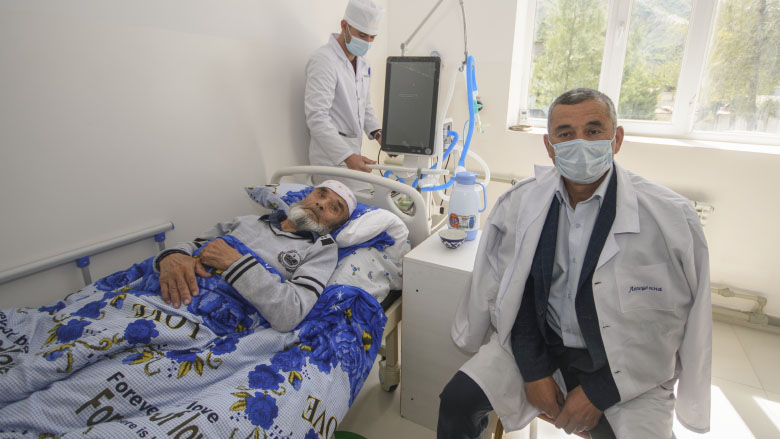
“We are grateful for the efforts of the Government and the World Bank in providing modern facilities for us. It has been three days after my father’s surgery. He is feeling better now,” says Mirzosharif Sobirov, a resident of the Varzob district.

The project partnered with the United Nations Office for Project Services (UNOPS), which procured and delivered the equipment despite substantial global shortages and market disruptions in the wake of the pandemic. With support from UNOPS, the Government was able to ensure timely, efficient, and transparent procurement of lifesaving medical supplies and equipment.
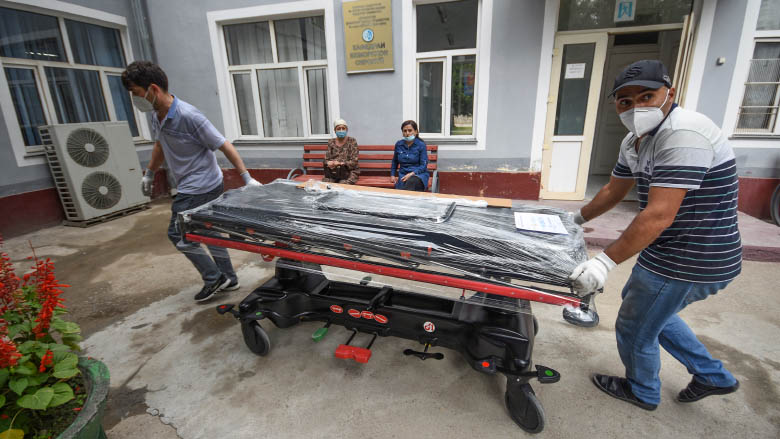

Through the project, the capacity of ICUs was strengthened in ten provincial and district hospitals across the country, including in Dushanbe, Hissar, Varzob, Khujand, Bokhtar, Kulob, Rasht and Khorog. These hospitals received modern medical equipment, including 68 ICU ventilators, 68 ICU beds with patient monitors, five mobile digital X-Rays with printers, ten blood gas analyzers, 20 infusion pumps, 100 oxygen concentrators, almost 400,000 pieces of PPEs, five plasma thawers, five steam sterilizers, 20 defibrillators, and ten electrocardiograms (ECG). UNOPS assembled and installed this equipment and provided training on its use to medical workers.
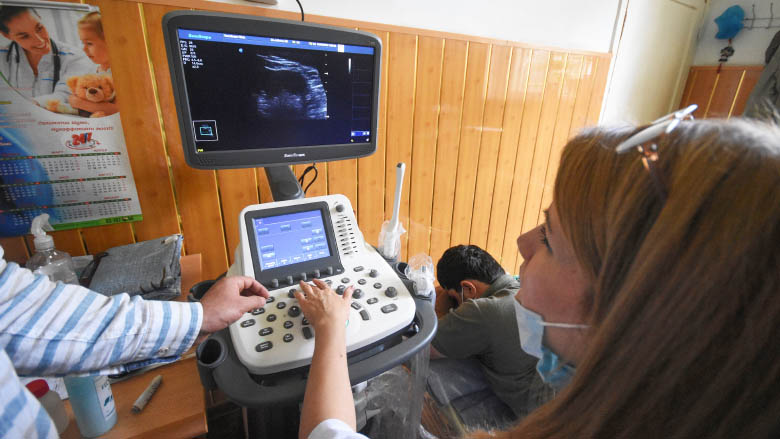

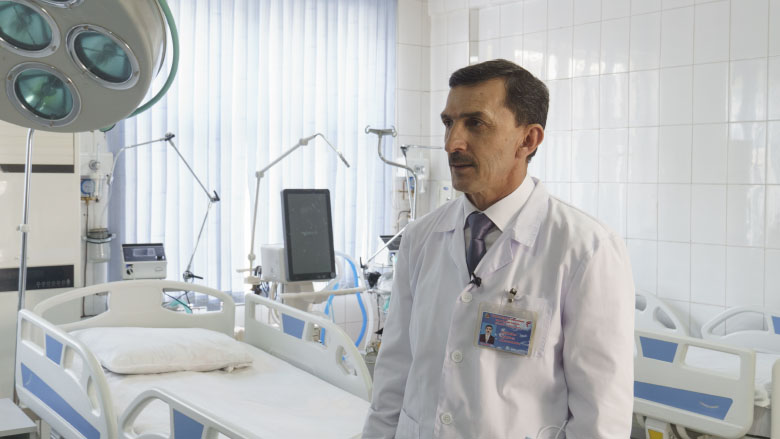
“The renovation and equipment we received made the job of our doctors a lot easier,” said Khurshed Habibzoda, chief doctor of the Zarafshon Infectious Disease Hospital in Tajikistan’s capital Dushanbe.

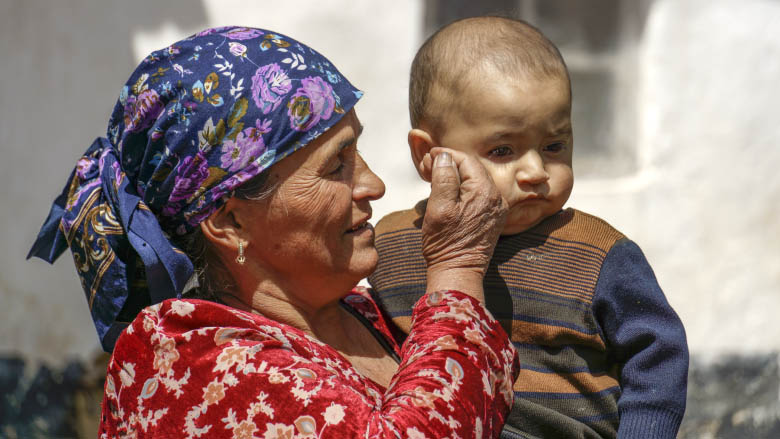
To offset the impacts of the COVID-19 pandemic on the poorest households, the project also made available one-time cash transfers of 500 somoni for low-income families with young children under the age of three across Tajikistan.
Nyozmoh Mirzoeva, who is not employed due to a long term disability, said that the cash assistance helped her purchase food to feed her grandchildren. When the pandemic struck last year, 41% of households reported that they had been forced to reduce their consumption of food, while 20% of families indicated they were unable to obtain medical care. The pandemic slowed down Tajikistan's economic growth to its lowest since the global recession. Real GDP growth was 4.5% in 2020 compared to 6.8% in 2010-19.

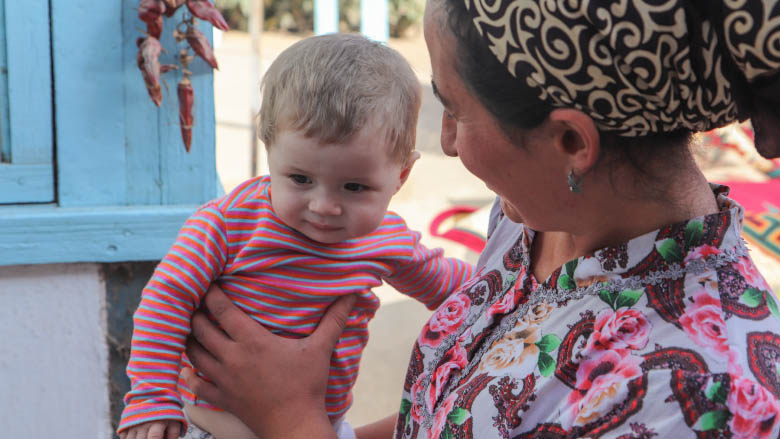
Over 65,000 people from poor households with children under the age of three received one-time cash assistance through the World Bank-financed project. In partnership with UNICEF, these families also received important information about good nutrition and parenting practices that help children stay healthy and grow to their full potential.
Mahina’s husband is a construction worker, but he had been unable to work after many construction projects were suspended last spring. The cash assistance Mahina received allowed her to buy food and medication for her one-year-old daughter Sarvinoz, who was recovering from a recent surgery. “The assistance was very important and timely for us. My daughter has fully recovered and is healthy now,” says Sarvinoz’s mother.

Given the importance of public outreach and communication for the prevention of the spread of COVID-19, the project invested in development and dissemination of informational materials about the coronavirus.
Parvina Mukhtorova—Head of the Republican Center for Healthy Lifestyle Formation, which is a partner under the project—said that, when the pandemic started, people lacked information about how to deal with COVID-19 or prevent getting infected. As she emphasized, it was essential to deliver informational materials and guidance on the virus to rural areas that are not as digitally integrated or connected, and therefore less likely to access information from the internet or TV.
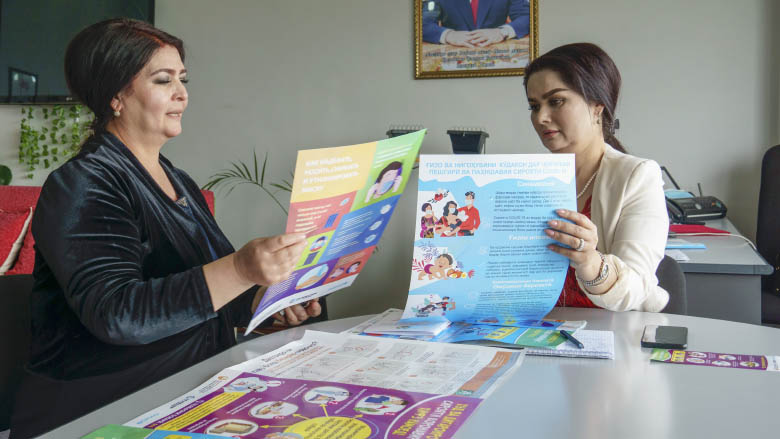

Project investments contributed to strengthening the communications capacity of the Ministry of Health and Social Protection and its public outreach and information, by providing equipment and technical support.
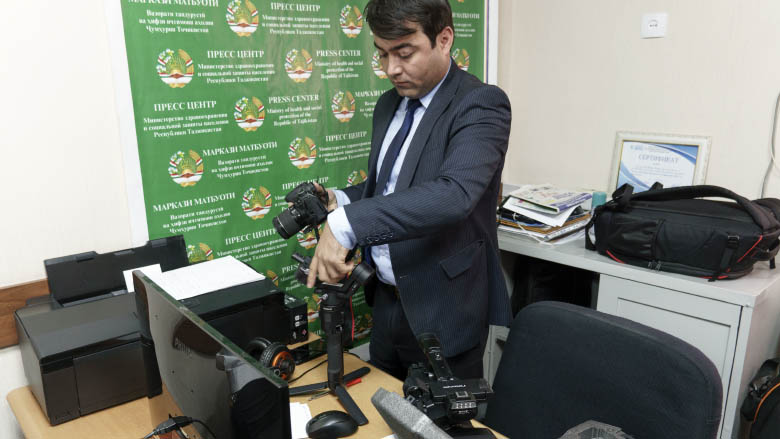

In February 2021, Tajikistan received additional financing from the World Bank to scale up activities under the existing COVID-19 response project:
$8.63 million in grant financing was approved for COVID-19 vaccines and $12.57 million in grant financing was allocated for investment in necessary infrastructure for the supply of oxygen in up to 15 hospitals across Tajikistan, including the 10 hospitals that have already received equipment and medical supplies through the original project approved in April 2020. This additional grant component will help severely ill COVID-19 patients and others to receive life-saving oxygen therapy. And one-time cash assistance will be provided to an additional 70,000 vulnerable households.
